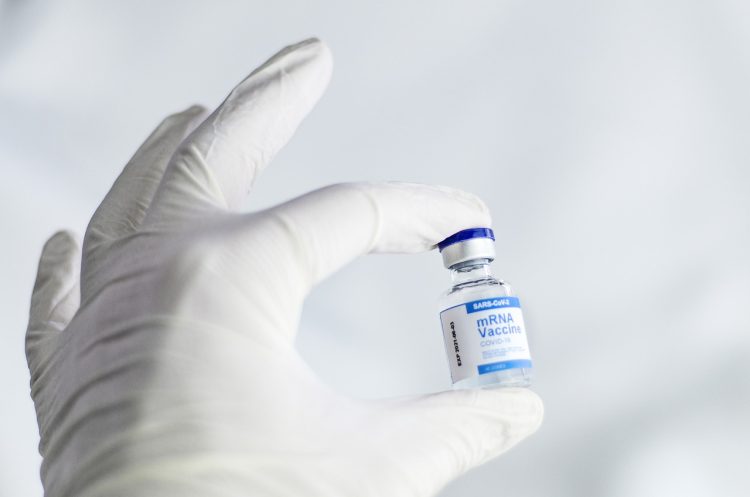Keeping your pet healthy goes beyond regular feeding and exercise. Vaccinations are a critical part of ensuring your pet remains safe from preventable diseases that can have serious health implications. Whether you have a new puppy, a kitten, or an adult pet, understanding which vaccines are essential is key to keeping them protected. Vaccinations not only protect your pet but also help reduce the spread of infectious diseases to other animals and, in some cases, even to humans. Here’s a guide to the essential vaccinations your pet needs and why they are so important.
Why Vaccinations Are Crucial
Vaccines work by stimulating your pet’s immune system to recognize and fight specific diseases. They prepare the body to ward off infections by introducing a small, harmless portion of the virus or bacteria, prompting the immune system to respond. This way, if your pet is exposed to the actual disease, their body is better equipped to fight it off.
The core vaccines are those that every pet should receive, regardless of their lifestyle, while non-core vaccines are recommended based on the pet’s environment and exposure risk. Vaccinations are an important preventive health measure that can save your pet from serious illnesses, and in some cases, prevent life-threatening complications.
Core Vaccinations for Dogs
For dogs, core vaccinations are considered essential because they protect against serious diseases that are either widespread or potentially fatal. These vaccines include:
- Rabies: Rabies is a viral disease that affects the central nervous system and is fatal once symptoms appear. It is also transmissible to humans, making it a critical vaccine not just for your dog but also for public health. Most areas require dogs to be vaccinated against rabies by law, and regular boosters are needed to maintain immunity.
- Distemper: Canine distemper is a highly contagious viral disease that affects the respiratory, gastrointestinal, and nervous systems. It is often fatal, particularly in puppies. The distemper vaccine is typically given as part of a combination shot known as the DHPP.
- Parvovirus (Parvo): Canine parvovirus is a deadly disease that primarily affects puppies, though adult dogs are also at risk. It causes severe vomiting, diarrhea, and dehydration. Without prompt treatment, it is often fatal. The parvo vaccine is part of the DHPP combination.
- Adenovirus (Canine Hepatitis): Canine adenovirus type 1 causes infectious canine hepatitis, which affects the liver and can be fatal. The vaccine also protects against adenovirus type 2, which can cause respiratory disease. This is also included in the DHPP combination.
Non-Core Vaccinations for Dogs
Non-core vaccines are recommended based on your dog’s lifestyle, geographic location, and exposure risk. These vaccinations are just as important if your dog falls into a high-risk category.
- Bordetella (Kennel Cough): Bordetella bronchiseptica is a bacterium responsible for kennel cough, a highly contagious respiratory disease. This vaccine is recommended for dogs that spend time in kennels, doggy daycare, or groomers, where exposure risk is high.
- Leptospirosis: Leptospirosis is a bacterial infection that can cause kidney and liver damage. It is also zoonotic, meaning it can be transmitted to humans. This vaccine is recommended for dogs that spend time outdoors, particularly in areas with wildlife or standing water.
- Lyme Disease: Lyme disease is spread by ticks, and the vaccine is recommended for dogs that are at risk of tick exposure, such as those living in or frequently visiting wooded or grassy areas.
Core Vaccinations for Cats
Like dogs, cats also require core vaccines to protect against highly contagious and potentially life-threatening diseases. These vaccines include:
- Rabies: Rabies is also a core vaccine for cats. Even indoor cats should be vaccinated against rabies, as they could potentially be exposed to infected wildlife that finds its way indoors. Rabies is fatal and poses a risk to humans as well.
- Feline Viral Rhinotracheitis (FVR): FVR is caused by the feline herpesvirus and is a leading cause of respiratory infections in cats. It is highly contagious and can cause severe symptoms, particularly in kittens.
- Calicivirus: Feline calicivirus is another common respiratory infection that affects cats. It can cause symptoms ranging from mild sneezing and nasal discharge to severe mouth ulcers and pneumonia. The FVRCP combination vaccine protects against rhinotracheitis, calicivirus, and panleukopenia.
- Panleukopenia (Feline Distemper): Feline panleukopenia is a highly contagious and often fatal disease caused by a parvovirus. It affects the cat’s white blood cells, leading to a weakened immune system, and can be deadly, especially in young kittens.
Non-Core Vaccinations for Cats
Non-core vaccines for cats are recommended based on exposure risks, such as spending time outdoors or in multi-cat environments.
- Feline Leukemia Virus (FeLV): FeLV is a potentially fatal virus that suppresses the immune system and can lead to cancers like lymphoma. It is spread through saliva, nasal secretions, and sometimes urine or feces. The vaccine is recommended for cats that go outdoors or live in homes with FeLV-positive cats.
- Chlamydia: Feline chlamydia causes conjunctivitis and can also contribute to respiratory issues. This vaccine is often given to cats in shelters or multi-cat households where the risk of spreading is higher.
Puppy and Kitten Vaccination Schedule
Puppies and kittens have immature immune systems, which makes them particularly susceptible to diseases. They receive antibodies from their mother’s milk, but these gradually decrease, leaving them vulnerable. A vaccination schedule typically starts at 6-8 weeks of age, with boosters given every 3-4 weeks until they reach 16 weeks.
- Puppies: The core vaccines, including DHPP (Distemper, Hepatitis, Parvovirus, and Parainfluenza) and rabies, are given in a series starting at around 6-8 weeks. Non-core vaccines, such as leptospirosis or Bordetella, may be included based on lifestyle and risk factors.
- Kittens: Kittens should receive the FVRCP vaccine starting at around 6-8 weeks, with boosters until they are 16 weeks old. The rabies vaccine is also given, and FeLV may be included for kittens expected to have exposure to other cats.
Adult Pets and Booster Vaccinations
Vaccinations don’t end when your pet is no longer a puppy or kitten. Adult pets need booster shots to maintain immunity throughout their lives. The frequency of these boosters depends on the vaccine type, your pet’s lifestyle, and local regulations.
- Rabies Boosters: Depending on the vaccine used, rabies boosters are typically required every one to three years. This varies by region, and some areas may have legal requirements for rabies vaccinations.
- Core Vaccine Boosters: Boosters for core vaccines like DHPP for dogs or FVRCP for cats are generally given every one to three years, depending on your veterinarian’s recommendation and your pet’s health status.
- Non-Core Boosters: Vaccines like Bordetella or Lyme disease may need annual boosters, particularly if your pet’s risk of exposure remains high.
The Importance of Vaccination Records
Keeping an accurate vaccination record is important for both you and your veterinarian. These records ensure that your pet is up to date on essential vaccines and can help you avoid unnecessary vaccinations. They are also useful when traveling, as many airlines and hotels require proof of vaccinations for pets. In addition, boarding facilities, dog parks, and grooming salons often require proof of certain vaccinations before allowing your pet entry.
Vaccinations and Herd Immunity
Vaccinating your pets doesn’t just protect them; it also helps protect the broader community. This concept is known as herd immunity. By vaccinating your pet, you contribute to reducing the spread of infectious diseases, thereby protecting those that cannot be vaccinated, such as very young puppies or kittens and pets with certain medical conditions. Herd immunity is particularly important in multi-pet environments, such as shelters and kennels, where diseases can spread quickly.
Recognizing Vaccine Side Effects
Most pets tolerate vaccines very well, but some may experience mild side effects. Common side effects include slight swelling at the injection site, mild fever, or lethargy for a day or two. These reactions are usually short-lived and resolve on their own.
In rare cases, pets may have an allergic reaction to a vaccine. Symptoms may include vomiting, swelling of the face, difficulty breathing, or collapse. If you notice any of these signs, contact your veterinarian immediately. It’s important to stay at the vet’s office for 15-20 minutes after your pet is vaccinated to monitor for any adverse reactions, especially if it’s their first time receiving a particular vaccine.
Working with Your Veterinarian
Your veterinarian is the best resource for developing a vaccination schedule that meets your pet’s specific needs. Factors like age, breed, health status, and lifestyle all play a role in determining the right vaccinations for your pet. It’s important to have an open dialogue with your vet, discussing any potential risks or concerns you may have. This ensures your pet receives the protection they need without unnecessary interventions.
Special Considerations for Senior Pets
Senior pets may have different vaccination needs compared to younger animals. Their immune systems can weaken with age, making them more susceptible to disease. However, they may also be more prone to adverse reactions from vaccines. Your veterinarian can help determine which vaccines are still necessary as your pet ages and how to balance maintaining immunity with minimizing stress on their body.
Vaccinations are a cornerstone of responsible pet ownership, offering protection from potentially deadly diseases and contributing to the overall health of the pet population. By staying informed and working closely with your veterinarian, you can ensure your furry companions live a long, healthy, and happy life.










